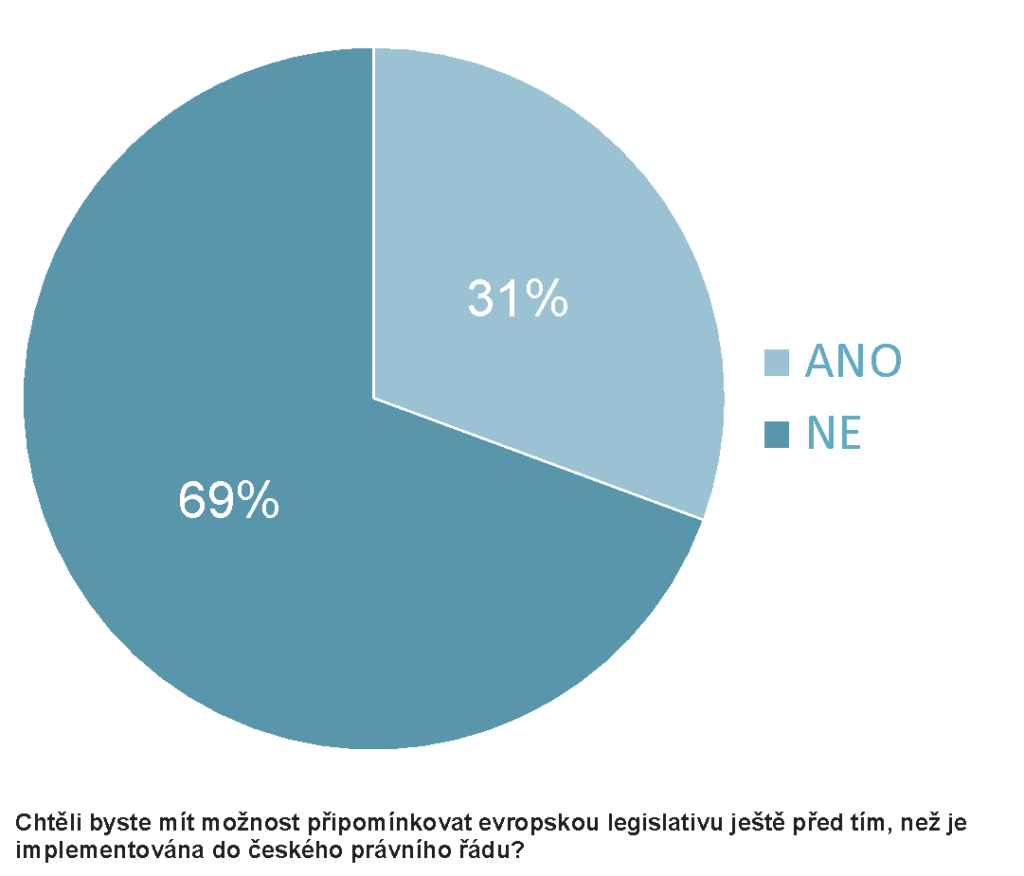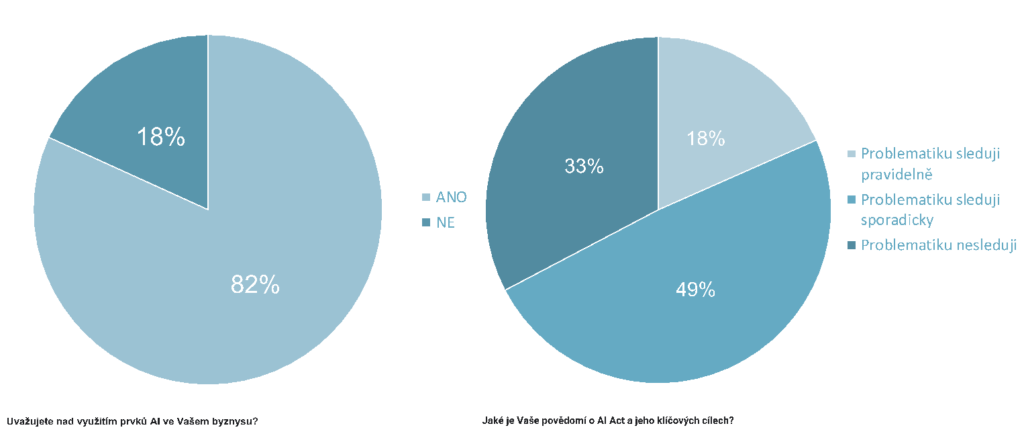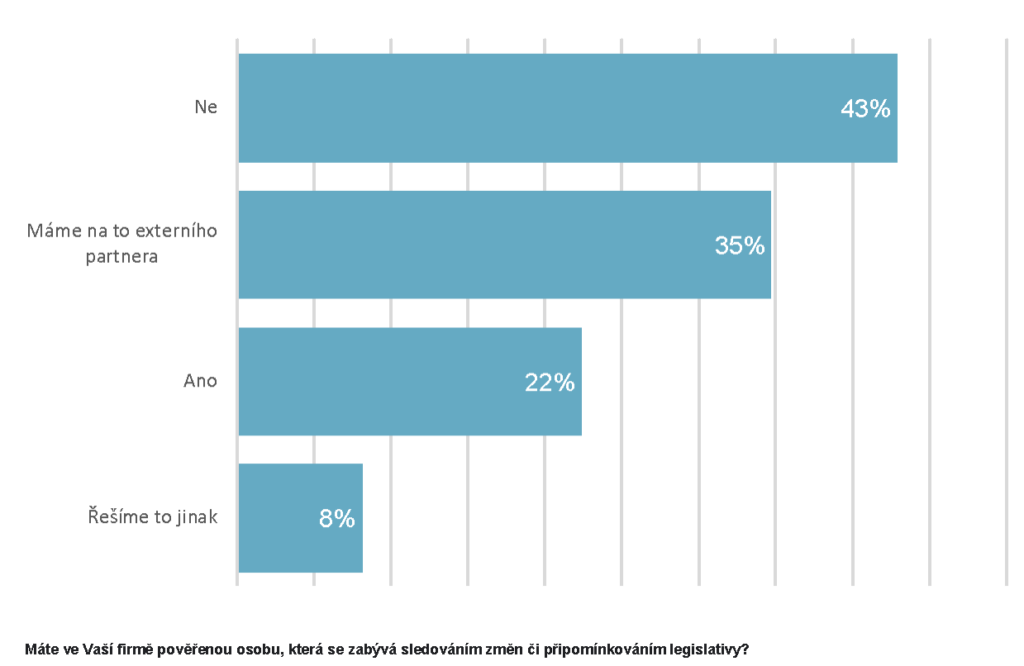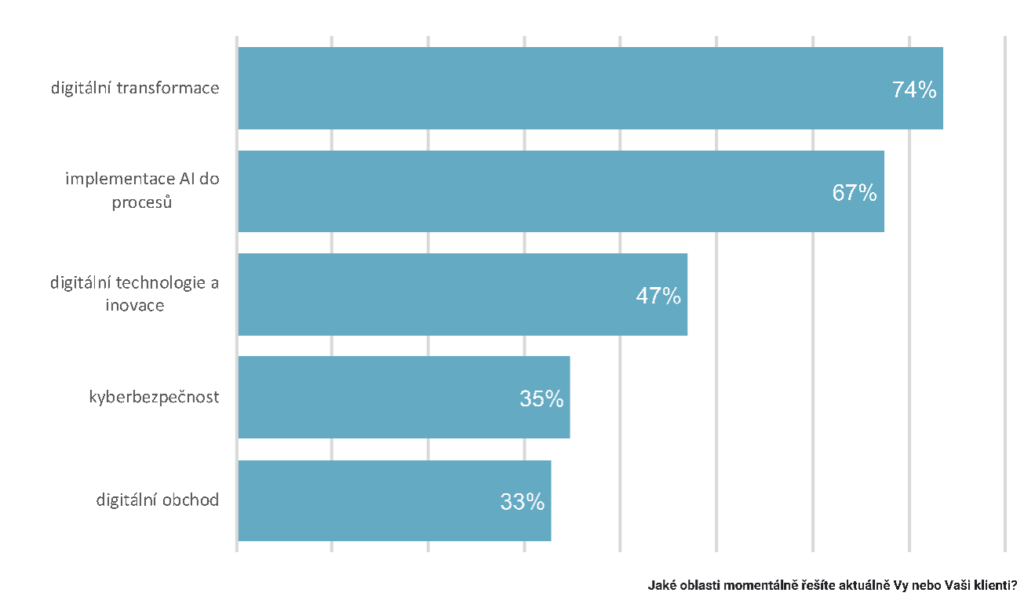
AAVIT SURVEY: The silent majority: 70% of Czech companies do not plan to comment on the upcoming legislation
AAVIT SURVEY: The silent majority: 70% of Czech companies do not plan to comment on the upcoming legislation
“This may be due to poor awareness of when to engage in the commenting process. For example, many companies think that we should comment on European legislation only when it is adopted in our country. But that is too late. The second reason may be ignorance of the impact on their business and therefore the assumption that the legislation does not concern them,” says Jaromír Hanzal, director of AAVIT, which tries to help Czech companies in the commenting process.
Businesses address legislation when they need it
Surprisingly, 70 % of companies are not interested in commenting on European legislation before it is incorporated into the Czech legal system, despite its potential impact on their operations. This raises the question: Is this lack of interest due to a lack of awareness or a deeper disinterest in legislative matters?
Businesses do not follow the changes regularly. But laws cannot be commented on retrospectively. A quarter of entrepreneurs said that they have a person in charge of dealing with pending legislation, 35% use an external partner, but almost half do not pay attention to this area.

“Czech companies should also have a say in the legislative process. Their business will also be affected. Of course, it all depends on their size. As we can see from the survey outcomes, the larger ones can afford to have their own people or hire outsiders. Smaller ones, unless they are part of an association, cannot put legislation among their priorities,” says Hanzal.
Companies are not aware of what laws are being prepared at the European level
Whether it is the Artificial Intelligence Act, the Data Act or other legislation, almost half of the respondents were unaware of what laws are being drafted at the European level. Companies had a better overview of Czech legislation, where 65% of respondents were aware. All but one of the large companies (250+ employees) said they had awareness of both Czech and European legislation on digital issues.

The most well-known laws among businesses are the Bank Identity Act and eGovernment. Upcoming laws such as the Cybersecurity Act and the Data Act, which will affect every business, are known to only half of the entrepreneurs. Only 20% of businesses are aware of the Chip Act.
“For example, the European Chips Act could have a significant impact on companies as it could change the shape of the EU semiconductor industry, potentially altering supply chains, market dynamics and compliance efforts. This legislation may also stimulate innovation and impact international trade relations, which could require strategic adjustments and investments by companies in different sectors,” Hanzal outlines some specific potential impacts to illustrate.

Digital transformation is still a pressing issue for businesses
Digital transformation remains a top priority for businesses, with 74% of them actively engaged in this fundamental change. Companies are also focusing on digital technology and innovation, which nearly half are pursuing, while a third are prioritising digital business strategies. Cybersecurity is another key area, with 35% of companies working to strengthen its effectiveness. In addition, artificial intelligence is also a big topic.
“As we can see, the survey found that 67% of businesses are taking steps to implement AI into their processes, reflecting the pervasive influence of technology in today’s corporate environment, which will only grow in the future. Therefore, we should support research into new technologies, thereby supporting the growth of Czech companies and Czech GDP, and get the rules right for everyone,” says Juraj Strieženec, COO of Kiwi.com.

About the survey:
The qualitative survey was conducted among 49 Czech companies between July and September 2023. It was a mix of smaller, medium and large companies, with the largest representation from the IT, finance, telecommunications and e-commerce sectors. The research aimed was to find out how aware Czech companies are of the proposed digital laws and to map the current situation in companies.
Full survey (in Czech only):


